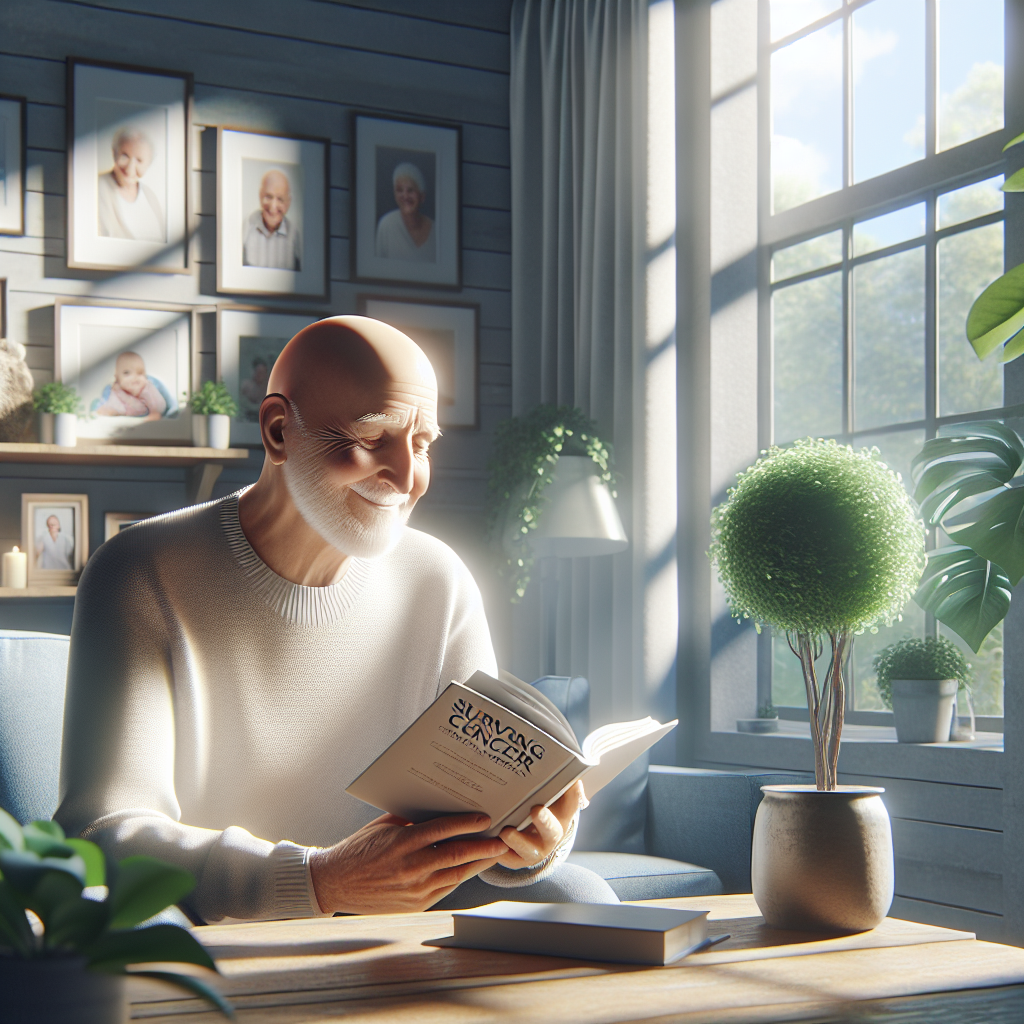Thriving After Pancreatic Cancer: Embrace Life with Hope and Resilience

At the age of 66, Joel Evans faced an unexpected challenge when he was diagnosed with pancreatic cancer. Initially, his routine blood tests, a necessity for managing his diabetes, revealed alarming results that prompted further investigation. With the guidance of his endocrinologist, Dr. Joseph Terrana, Joel underwent a series of scans that ultimately led to a critical diagnosis—one that many do not survive.
The Diagnosis Journey: From Blood Tests to Discovery
Joel’s journey began with a routine evaluation of his blood work. During the January 2015 tests, an elevated bilirubin level raised red flags for Dr. Terrana. This led to a CT scan, followed by an ultrasound endoscopy, all of which strongly indicated the presence of pancreatic cancer. Remarkably, Joel exhibited no symptoms, a common scenario for many diagnosed with this aggressive disease. Fortunately, his cancer was detected early, allowing for timely intervention.
A Life-Saving Whipple Procedure
Upon receiving the diagnosis, Joel was referred to Dr. Gene Coppa, a prominent figure in the field of surgery at Northwell Health in Manhasset, New York. Despite a delay due to a snowstorm, Joel and his wife, Linda, met with Dr. Coppa, who recommended an urgent Whipple procedure. Just four weeks post-diagnosis, Joel underwent the intricate surgery, which lasted 8.5 hours. The surgery was successful; Dr. Coppa removed the entire tumor with clear margins—there was no sign of cancer in the surrounding lymph nodes.
The Next Step: Chemotherapy Treatment
After recovering from the Whipple procedure, Joel faced the next hurdle: chemotherapy. His first oncologist delivered a less-than-hopeful outlook, prompting him to seek a second opinion. He connected with Dr. Jeffrey Vacirca, a hematologist and oncologist at New York Cancer and Blood Specialists. Dr. Vacirca’s empathy and realistic optimism boosted Joel’s spirits, assuring him he would be able to attend his daughter’s wedding in seven months.
Joel’s chemotherapy regimen included a combination of three drugs: Gemzar, Abraxane, and Xeloda. Unfortunately, he experienced an allergic reaction to Xeloda, forcing him to discontinue its use. Throughout his treatment, he made a conscious effort to maintain a positive attitude, engaging in activities that uplifted him, including meditation classes and light exercise. He completed his chemotherapy on August 26, 2015.
Life After Cancer: Navigating New Challenges
Post-surgery, Joel had to adjust to significant changes in his health. Transitioning from a type 2 to a type 1 diabetic required more intensive insulin management. He also started taking medications to support his digestive health, including Creon and Zofran. While he experienced side effects like diarrhea and stomach cramps due to the surgery, he remained vigilant about his health, attending regular check-ups for CT scans and blood tests.
Despite some lingering side effects from chemotherapy, including osteoporosis, Joel proudly shares that he is currently cancer-free. He acknowledges that his journey has been a challenging one, but each clean scan brings him renewed hope and gratitude. As one of the fortunate 5% of pancreatic cancer survivors, Joel has embraced his "new normal," choosing happiness every day.
Giving Back: Inspiring Others Through His Journey
With over four years since his Whipple surgery, Joel is committed to helping others facing similar challenges. He authored a free book titled Surviving Cancer and Embracing Life: My Personal Journey, aiming to inspire and support those affected by pancreatic cancer. Joel believes in giving back, participating in initiatives like the Lustgarten Foundation’s fundraising walk to support research efforts.
To watch Joel’s inspiring story, check out "I Must Give Back" here.
Joel Evans’ journey is a testament to resilience, hope, and the power of community support in the fight against pancreatic cancer.





